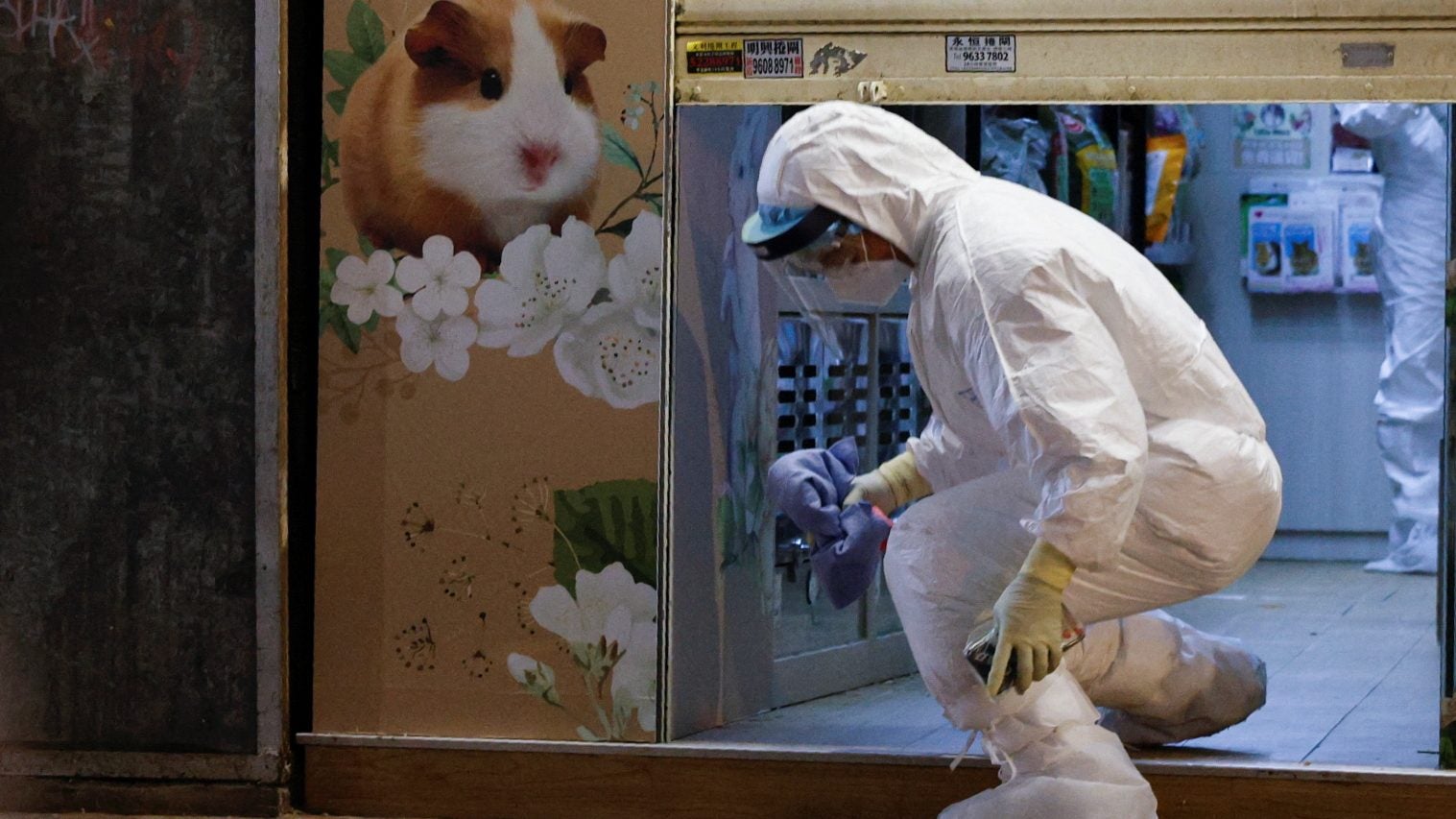Hong Kong’s hamster cull shows the absurdity of its zero-covid mission
When the history of Hong Kong circa 2022 is written, the Great Hamster Massacre will be a watershed event: an exemplar of how the city’s relentless, irrational pursuit of zero-covid led it into absurd territory.


When the history of Hong Kong circa 2022 is written, the Great Hamster Massacre will be a watershed event: an exemplar of how the city’s relentless, irrational pursuit of zero-covid led it into absurd territory.
On Jan. 18, the Hong Kong government demanded that pet shops and hamster owners turn over 2,000 hamsters, after 11 hamsters in a single pet shop tested positive for the coronavirus. The hamsters were imported from the Netherlands in late December, so the government also banned further hamster imports.
The government made it clear that it planned to cull all hamsters that came into the country after Dec. 22, even though evidence for animal-to-human transmission of the coronavirus is scanty. The Centre for Animal Health and Welfare, at the City University of Hong Kong, said in a statement that hamsters “shed the virus in respiratory secretions for three to six days” and that they posed “negligible” risk. “We urge pet owners not to panic, not to abandon their pets, and to use normal hygienic measures when handling pets,” the statement said.
The hamster cull has distressed Hong Kong residents, who are entering their third year of draconian covid regulations. On the messaging app Telegram, volunteers offered to take in hamsters destined for the ax. One hamster owner told The Standard, a Hong Kong news outlet, that she’d just taken a covid test. “If the testing result shows I’m not infected no one can take my hamster away unless they kill me,” she said. In response, the government warned that it would refer members of the hamster resistance to the police.
Hong Kong’s zero-covid policy isn’t working
At a time when most other countries are finding ways to live with covid—including countries with previously strict covid rules, such as New Zealand and Singapore—Hong Kong is still clinging to its ambition to caulk the city firmly against the virus. It shut down flights from a number of countries in response to omicron, banned evening dining in restaurants, and closed bars and gyms. Schools are shut. Anyone who makes it into Hong Kong has to undergo three weeks of hotel quarantine.
In a city that has always prided itself on its connections to the world, the effects of these rules—an extension of China’s own zero-covid approach—are showing. Last year, Hong Kong’s population shrank by 1.2%—a record for the city. Fitch Ratings has predicted that, if the government sticks to its zero-covid policy, “risks to Hong Kong’s growth prospects and public finances will be compounded.”
The rigor of these covid restrictions is, in some ways, also a proxy for China to extend its control over Hong Kong and its democratic movements. But even in their self-declared mission to beat covid, these regulations are merely buying temporarily low case numbers for the price of other long-term benefits. Meanwhile, vaccination, the single most effective measure, remains stalled at a rate of less than 70%. The fixation on keeping case numbers low has long affected the mental and economic health of Hong Kong’s residents. Now, unexpectedly, it’s affecting the city’s small, furry rodents as well.